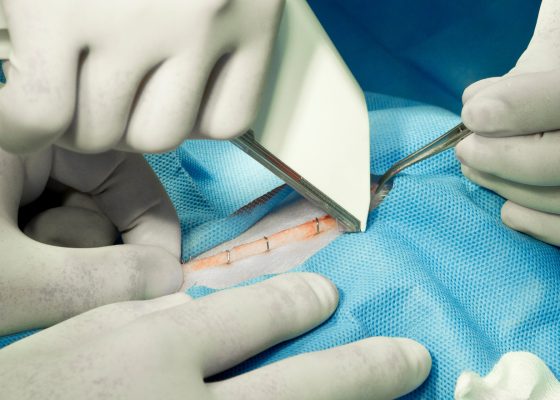The CDC, but GPs and private hospitals don’t have much to smile about either.
The future of the Australian Centre of Disease Control remains unclear at best, and precarious at worst, after a federal budget that gave it nothing and ignored it entirely in all its documentation.
Established on the back of the Albanese government’s 2022 election promise of “improved pandemic preparedness and response” and set up with $90 million of initial funding, the ACDC is almost totally invisible.
Since 1 January this year it has allegedly been operating in a tiny corner of the Department of Health and Aged Care, under the supervision of chief health officer Professor Paul Kelly, but the lack of love in yesterday’s budget must have it feeling cold and unloved.
“The absence of any budget line item for the ACDC suggests pandemic amnesia four years after the lives of everyone in Australia was upended,” said Public Health Association of Australia CEO, Adjunct Professor Terry Slevin.
- For coverage of how GPs fared in the budget, visit The Medical Republic
“An ACDC must serve many functions, including leading the national effort to properly prepare for future pandemics, which infectious disease experts have repeatedly warned are likely to happen.
“We had hoped that this budget would contain clear resource allocation and timelines explaining how and when the Albanese Government would fulfil its election promise to establish and fund the ACDC. That hope has been dashed.”
Professor Slevin said the silence had created uncertainty about the future of disease control in Australia.
“[It] should be our chance to reduce the burden of health threats both known and unknown,” he said.
“As we learned in 2020-21, unless we have a healthy population, we cannot have a healthy economy.
“This budget kicks the election commitment to establish a real ACDC down the road again.
“It builds enormous expectations for the pre-election MYEFO – assuming there is one. If not, we fear this vitally important 2022 election commitment to the health of future generations of people in Australia may fail to materialise.”
The ACDC wasn’t the only orphan on the night, however.
Private hospitals got no love either, with Catholic Health Australia’s CEO Jason Kara saying it was a “missed opportunity”.
“The government has ignored a critical part of the health system that performs two thirds of elective surgeries in this country, missing an opportunity to take pressure off public hospitals” he said.
“In the past five years, 71 private hospital services have closed down as a result of workforce shortages and funding from insurers failing to keep pace with soaring costs of providing care.
“Without immediate action, these closures will continue and more private patients will be pushed into public hospitals which are already operating over capacity, impacting patient access to timely care and increasing costs for taxpayers.
“In addition to reducing demand on the public system, private hospitals provide patients with choice and improved access to care and are therefore a vital component of Australia’s health system.”
The NDIS didn’t just go unnoticed by the budget, it lost money, with spending on the program expected to be $14 billion less over four years than projected in the mid-year economic and fiscal outlook.
That saving comes from the ending of the automatic top-up of NDIS plans once a participant has used all their funds.
Treasury forecasts expect NDIS Commonwealth-funded participant payment growth to average 9.2% year on year compared to 10.1% predicted at the MYEFO in December.
The government will spend about $84 million over two years to boost fraud detection capability at the National Disability Insurance Agency, however.



